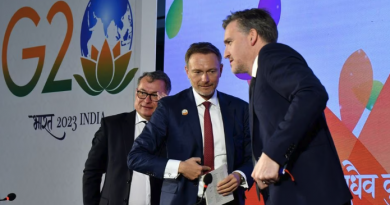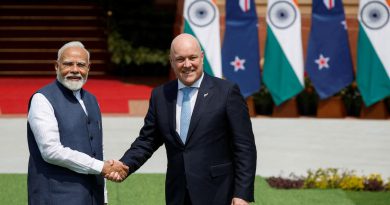India has eliminated extreme poverty: IMF Report
New Delhi – India has almost eliminated extreme poverty, a latest report by International Monetary Fund (IMF) stated. The report attributes the credit to the government-sponsored public food distribution system.
According to the report, India’s extreme poverty was as low as 0.8% in 2019 and the country managed to keep it at the same level in 2020 despite the COVID-19 pandemic, by resorting to food transfers through the Pradhan Mantri Garib Kalyan Yojana (PMGKY).
The report titled, ‘Pandemic, Poverty & Inequality: Evidence from India’, stated that “post-food subsidy inequality at 0.294 is now very close to its lowest level 0.284 observed in 1993/94″.
Report gives estimates of poverty and consumption inequality in India for each of the years from 2004-05 through 2020-21.
“These estimates include, for the first time, the effect of in-kind food subsidies on poverty and inequality”, it said.
Approximately 89.1% of rural eligible households and 77.3% of urban households, with an all-India average of 84.6%, received food transfers during the pandemic period. The share of food in the average Indian consumption basket, according to the consumption expenditure survey of 2011-12, stands at 46%. But, for the poor, it’s upwards of 60%, according to the report.
“The expansion of India’s food subsidy program rather than increasing cash transfers enabled the government to provide free food as per the average monthly requirement to all those who were entitled to purchase the same from the PDS system. The Food Security Act (2013) and the increased use of Aadhar accelerated the declining proportion of leakage(s) in the programme,” report stated.
PMGKY supplied free grains initially for the April-June period of fiscal year 2021. Then it was extended till November-end, 2020.
Later, with the rise of second wave of COVID-19 pandemic, the scheme was re-introduced in May-2021, which lasted till fiscal year 2022 end. Lately, it has been extended until September 2022.
Under the PDS system, more than 81.35 crore people are eligible for 5 kg free wheat or rice per person per month, along with 1 kg free whole chickpea to each family per month.
The latest extension of September-2022 would cost the government 80,000 crore Indian rupees.
Economists Surjit Bhalla, Karan Bhasin and Arvind Virmani have authored the report.



